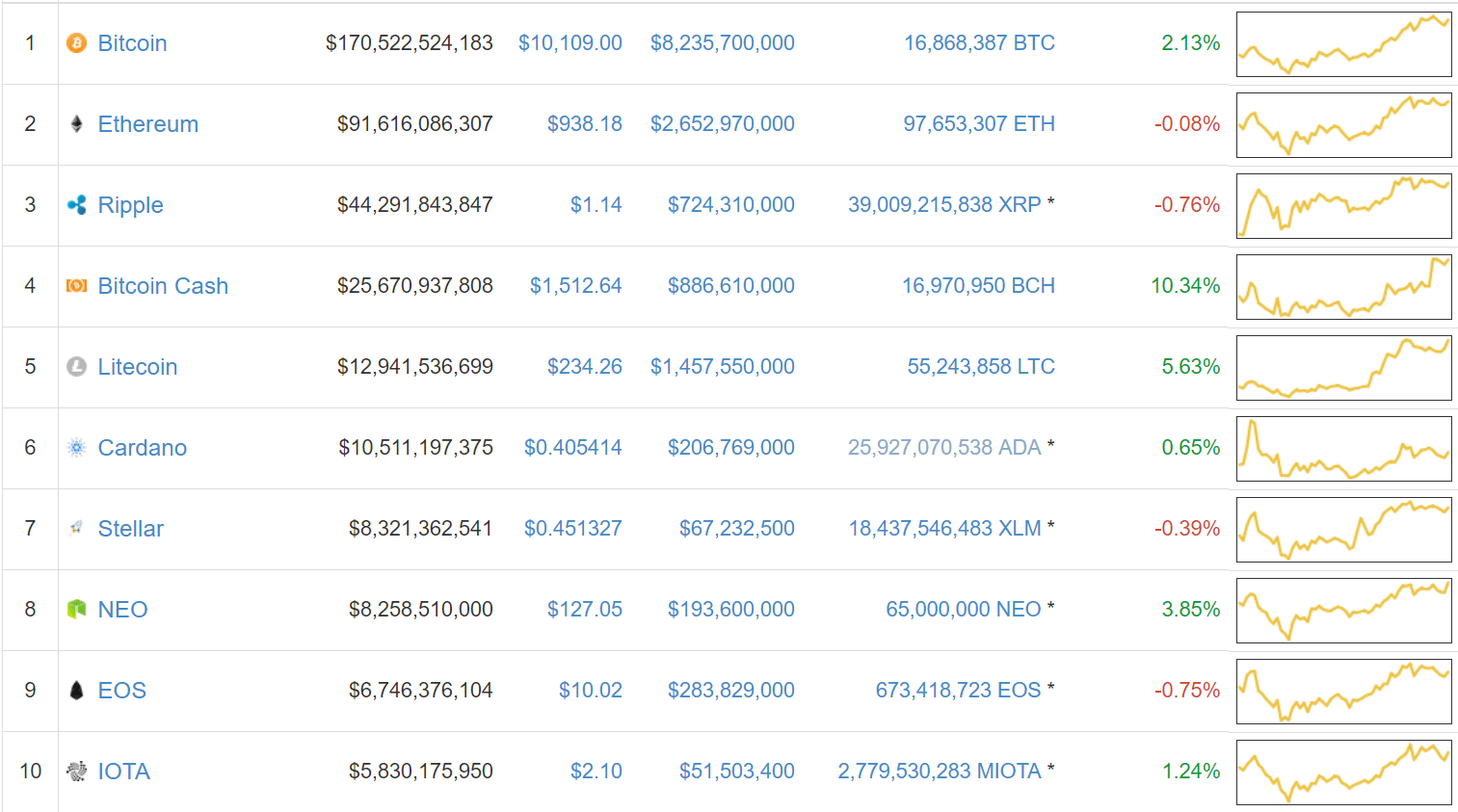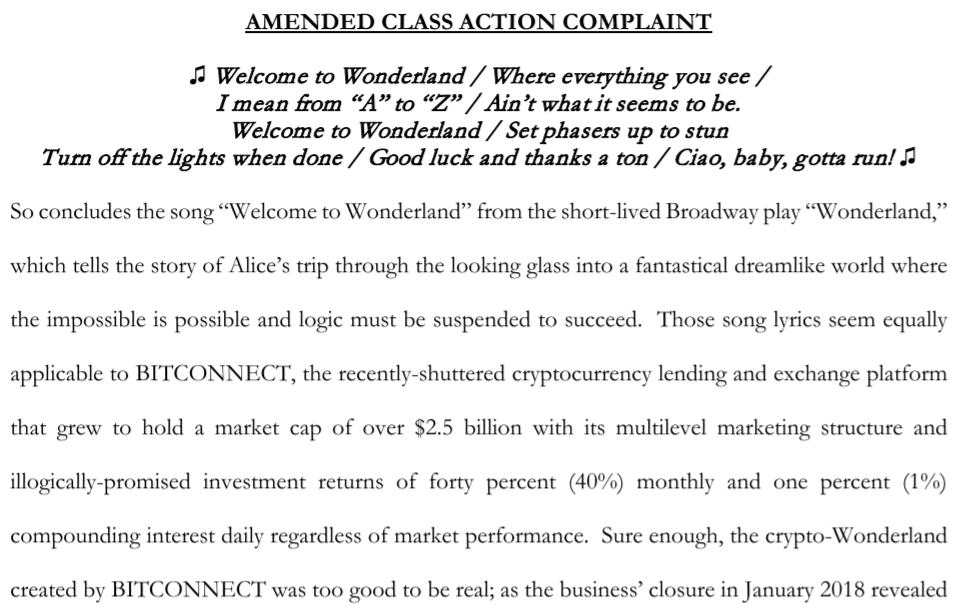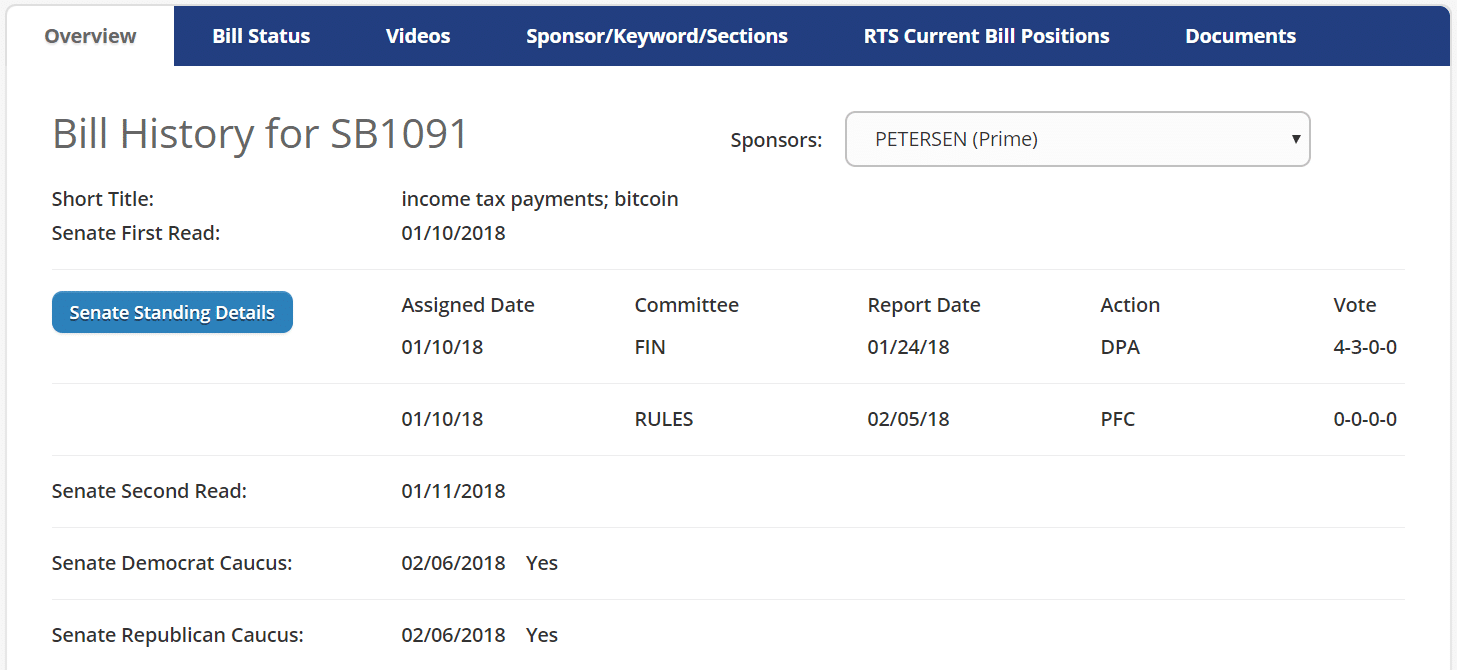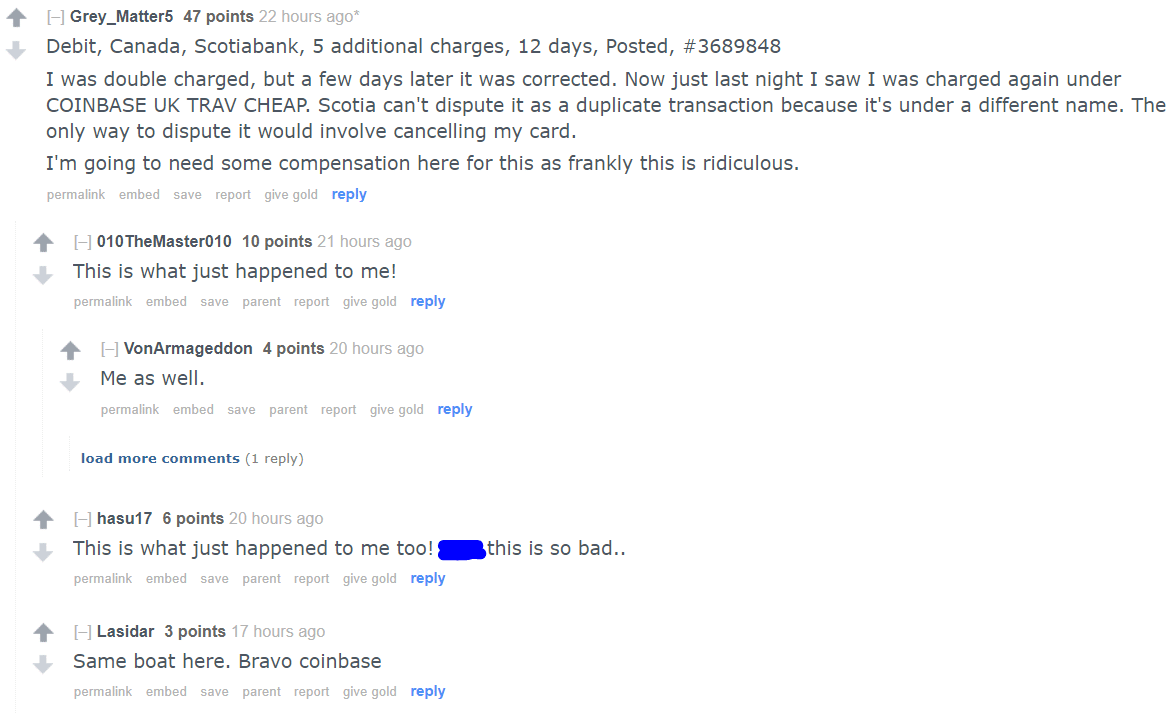This Week in Cryptocurrency–February 16th, 2018
Buy Me a Stairway to Heaven
Things are looking up, folks–figuratively and literally. Price action has been on a steady upward trend since prices plunged to their lowest since November 2017. On February 6th, crypto’s overall market cap drooped to $276bln, down from $834bln at its all-time high in January.
At press time, the market has gained $200bln from its post bull-market low at $482bln, and that means that assets across the board are doing better than they have all month.
Bitcoin: Leading the recovering pack is crypto’s golden boy. Bitcoin is currently going for $10,120, a healthy 17% climb from the $8,400 it was sitting at last Friday.
Ethereum: All things considered, Ethereum has seen some positive price action, as well, albeit a more conservative run-up than Bitcoin’s own. With a price tag of $937, Ethereum is up 9% from the $847 it featured last week.
Ripple: Ripple takes the cake this week for best performance out of the top three. The banker’s coin sports a $1.14 asking price at time of writing, which puts is at a 21% increased from $0.90 last week.
Domestic News
The CFTC Is on a Roll as it Hosts its Own Hearing on Currencies, Proposes Subcommittees: A week out from the SEC/CFTC’s Senate testimonies, the CFTC’s Technology Advisory Committee held a public meeting on cryptocurrencies and blockchain technology. The meeting included discussions on blockchain’s potential and the need for stronger regulations for the cryptocurrency market, and the committee unanimously voted to create two new subcommittees to tackle these areas.
BitConnect in Lawsuit Land: A third lawsuit was filed in Florida against BitConnect this week, bringing the total number of lawsuits up to five nationally. Since BitConnect closed its doors in January, users have jumped at the opportunity to sue the lending platform for selling unregistered securities. Oh, and this latest lawsuit’s opening statement compares BitConnect’s quixotic investing promises to the phantasms of Alice’s Wonderland–we’ve certainly fallen down the rabbit hole with this one as even the courtroom has taken a turn for the surreal.
Microsoft Looks Into Blockchain for ID Capabilities: In a blog post, Microsoft stated it is starting to weigh the potential to use blockchain for decentralized identities with its Microsoft Authenticator App. “Some public blockchains (bitcoin, ethereum, litecoin, to name a select few) provide a solid foundation for rooting DIDs, recording DPKI operations, and anchoring attestations,” Microsoft ID division employee Ankur Patel wrote in the official announcement.
Virtually Nobody is Reporting Crypto Gains to the IRS: 0.04% of US citizens who use Credit Karma for their taxes have reported cryptocurrency transactions in their tax filings. Even while 57% of 2,000 individuals surveyed in a Credit Karma report indicated that they realized gains from their crypto investments, only 100 of 250,000 Americans who have used the service to file taxes reported anything crypto related. Now, not everyone who uses Credit Karma is invested in crypto, but we’d be willing to bet that it’s more than 0.04%.
Pass the Buck, Uncle Sam: Arizona Legalizes Tax Payment in Crypto: Perhaps people would pay taxes on crypto gains if they could pay in cryptocurrencies. Well, if you live in Arizona, this is now a possibility, as the Arizona state Senate has passed a bill that will allow residents to pay taxes in cryptocurrencies. Residents will be able to do so through “a payment gateway, such as Bitcoin, Litecoin or any other cryptocurrency recognized by the department, using electronic peer-to-peer systems.”
Fess Up to Ownership: One Congressman Calls for Legislature Transparency Over Crypto Holdings: Jared Polis (D), a US House rep from Colorado, sent out a petition this week to the House Ethics Committee requesting that members of Congress disclose their cryptocurrency investments (something that they already do for traditional assets exceeding $1,000). Polis is a vocal proponent of blockchain in the US House and the founder of its Blockchain Caucus.
The SEC isn’t Releasing Information Regarding Tezos’ ICO: The SEC has denied David Silver’s request for information regarding Tezos under the Freedom of Information Act. Silver represents plaintiffs in a class action against Tezos, which is facing legal troubles from multiple suits as ICO tokens have yet to be distributed amidst a turmoil of project in-fighting. The SEC called on exemption 7(A) of the FOIA which “protects from disclosure records compiled for law enforcement purposes, the release of which could reasonably be expected to interfere with enforcement activities.”
Weiss is Skeptical About Tether, Issues Warning: Following up on their much-controversial cryptocurrency grades, Weiss Ratings Agency issued a formal alert on Tether, arguing that investors should be cautious that Tether has never been audited to verify that every Tether is backed by an equal amount in fiat. “The big issue: There’s never been an audit, and the folks behind Tether has been quite shady when asked. They have continuously claimed their tokens are backed 100% by actual dollars, yet they have failed to present any evidence to support this claim.”
[thrive_leads id=’5219′]
What’s New at CoinCentral?
What is AdEx (ADX)? A Beginner’s Guide: AdEx (ADX) stands for “advertising exchange.” They’re building a decentralized platform where advertisers and online publishers can meet to negotiate advertising contracts.
Here Comes LitePay, a Litecoin Payment Processor: Litecoin recently unveiled LitePay, a payment solutions platform that wants to be the “world’s first borderless payment network.”
What is Quantumstamp (QSP)? A Beginner’s Guide: Quantstamp is a security-auditing protocol for smart contracts. Learn more in our beginner’s guide.
What is Storj? A Beginner’s Guide: Storj is an open source, decentralized file storage solution. It uses encryption, file sharding, and a blockchain-based hash table to store files on a peer-to-peer network. The goal is to make cloud file storage faster, cheaper, and private.
What is Bluzelle? A Beginner’s Guide: Learn more about Bluzelle and its mission to create a decentralized database on blockchain with our beginner’s guide.
What is SingularityNET (AGI)? A Beginner’s Guide: SingularityNET is a decentralized marketplace for Artificial Intelligence (AI).
What is Verge (XVG)? A Beginner’s Guide: Verge is a privacy-focused cryptocurrency that aims to keep transactions anonymous and untraceable while allowing for high throughput and fast confirmation times.
What is Maker Dai? A Beginner’s Guide: Offering a viable stablecoin substitute to Tether, Maker is a smart contract platform that controls and sells Dai. Decentralized and trustless, the Maker platform stabilizes the value of Dai to one U.S. dollar using external market mechanisms and economic incentives.
IOTA’s David Sønstebø on Monetizing Data, User Privacy, and 2018 Priorities: Coin Central’s Bennett Garner recently had the chance to interview David Sønstebø, one of the co-founders of IOTA, to talk about how IOTA is implementing its Tangle in the real world. As part of the conversation, they also discussed monetizing data, protecting user privacy, and IOTA’s priorities for 2018.
Millions of Missing XRB Have Left BitGrail Exchange Insolvent: Here’s What We Know: Bitgrail recently announced its insolvency after roughly 15-17mln XRB went missing. Here’s what we know about the state of things so far.
Hush, a protocol-level privacy coin and secure messenger based on Zcash: Launched on November 21, 2016, Hush is a token, secure messaging platform, and fork of the Zcash 1.0.9 codebase.
What is Eximchain? | Improving Supply Chain Financing for SMEs: Eximchain is an MIT-based software development company using blockchain to improve supply chain financing (SCF).
Ethereum Classic | Beginner’s Guide: Ethereum Classic is the original Ethereum blockchain and allows for the implementation of decentralized applications and smart contracts.
What is Aeternity? | Beginner’s Guide: Aeternity is a new platform for decentralized apps (dapps) launched in testnet in 2017. It also held a successful token offering in 2017 for its Aeon (AE) token.
Co-Founder of MyEtherWallet Breaks from Project, Forks Software to Create My Crypto: Taylor Monahan, the co-founder of MyEtherWallet (MEW), has left her baby to begin work on a new venture. The nascent project, dubbed MyCrypto, is similar to the original, so much so that it’s actually a software fork of the MyEtherWallet code.
Forbes Releases Crypto Rich List: Ripple Royalty, Winklevoss Twins, & Tim Draper: Forbes released its first ever cryptocurrency rich list last week–check out who made the cut.
Cryptocurrency News from Around the World
Atari Will Launch its Own Coin with Atari Token: Atari is trading in Pong and Pacman for a newer model: blockchain. The company recently announced that it would launch its own token, Atari Token, with plans to build a blockchain-based entertainment platform. “Blockchain technology is poised to take a very important place in our environment and to transform, if not revolutionise, the current economic ecosystem, especially in the areas of the video game industry and online transactions,” the company’s CEO Frederic Chesnais stated.
At the Olympics, Going for Gold and Getting Paid in Digital Gold: Ted-Jan Bloeman set two records this Olympics: one for his 12:39.77 gold medal run in the men’s 10,000m long-track speed skating, and one for being the first Olympic athlete to accept payment in crypto. The Canadian received cryptocurrency for a one-year sponsorship deal with ONG Social, a crypto/social media community and CEEK VR, a virtual reality development company.
I’m very excited to be the first ever #Crypto Sponsored Athlete. Thanks @CEEK #VirtualReality and @Ong_Social for being at the forefront of technology and this great achievement. Looking forward to a great relationship and the exciting times ahead. pic.twitter.com/mCHbNzkKW8
— Ted-Jan Bloemen (@TedJan) January 31, 2018
South Korean Government Issues Statement on Public Crypto Petition: A South Korean petition that calls the government to relax its regulatory hold on cryptocurrencies has reached 280,000 signatures. Government policy coordination minister Hong Nam-ki responded to the petition, issuing the following statement: “The government’s basic rule is to prevent any illegal acts or uncertainties regarding cryptocurrency trade, while eagerly nurturing blockchain technology.”
Coinbase Admits that a Bug Lead its Platform to Overcharge Some Users: After multiple complaints on Reddit, Coinbase fessed up that a system glitch overcharged some customers when they used the site to purchase cryptocurrencies. Some users complained of being charged as much as 17x the amount the intended. A Coinbase spokesperson on Reddit wrote that the company is “actively investigating some reports from our customers about unexpected credit or debit card charges appearing on their statements from previous Coinbase purchases.”
Don’t Expect the European Central Bank to Jump on Crypto Regulations Any Time Soon: ECB President Mario Draghi does not believe it’s up to the EU’s banking center to introduce regulations for crytpocurrencies. Responding to Twitter questions of the sort in his #AskDraghi video serious, he succinctly replied, “It’s not the ECB’s responsibility to do that.”
Gibraltar to Introduce World’s First Comprehensive ICO Regulations: The Gibraltar Financial Services Commission announced this week that it plans to craft legislation to regulate ICOs within the next few weeks. The draft law will oversee ICO token marketing, sales, and distribution in the British territory, and it will be the first legislation to ever directly target ICOs in the world.
Italian Exchange Bitgrail is Insolvent, and We Still Don’t Know Why: This past weekend, Bitgrail announced its insolvency to the world after 15-17mln XRB went missing from its wallet reserves. Thing is, Bitgrail’s founder, Francisco Firano claimed that the losses were the result of a hack. Community members (and the Nano team) are not so convinced, and it’s likely that malicious opportunists have been exploiting a withdrawal bug on Bitgrail’s platform for months to take more currency out of the exchange than they actually deposited.
Cryptocurrency Mining on Pace to Overtake Household Energy Consumption in 2018: Mining is reaching critical mass in Iceland. Johan Snorri Sigurbergsson, an employee of energy provider Hitaveita Sudurnesja, calculates that cryptocurrency mining could exceed 100 megawatts, more than the country’s 340,000 residents consume annually. The frigid country has become a hotbed for mining this past year thanks to its cold climate and renewable energy sources.
[thrive_leads id=’5219′]











